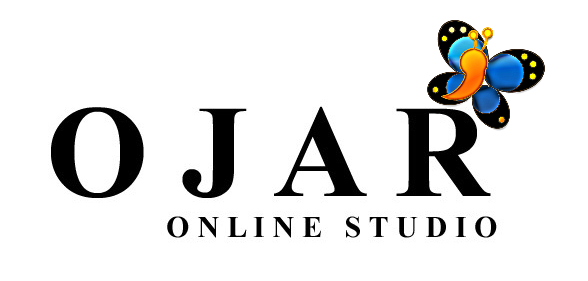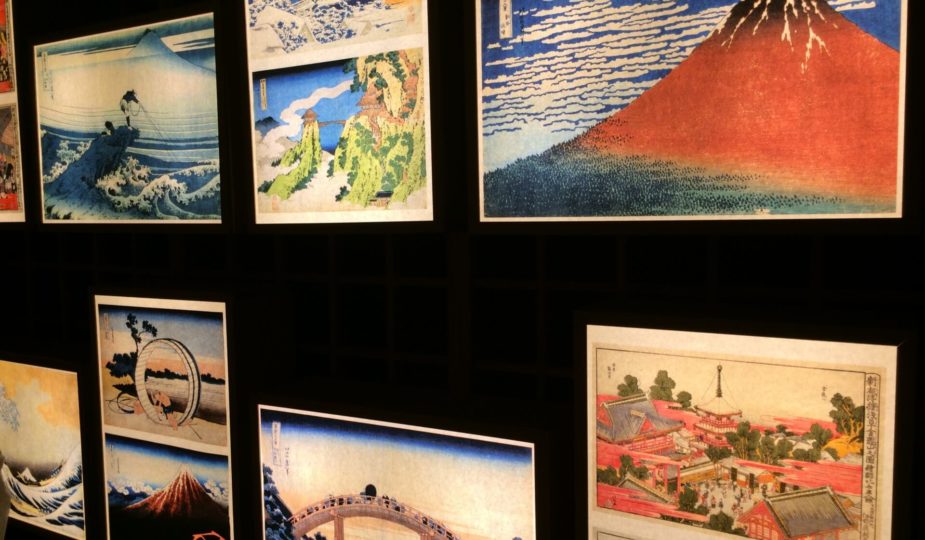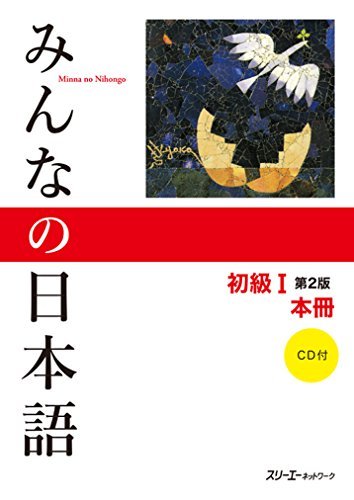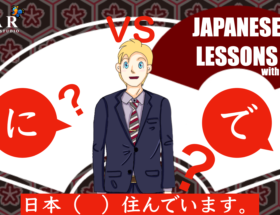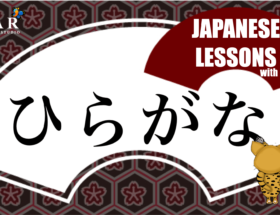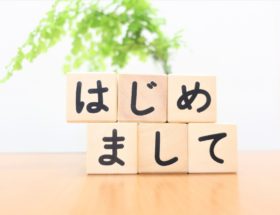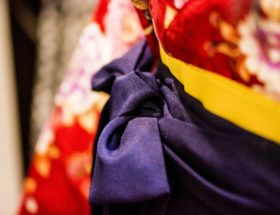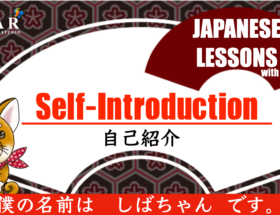Hi, I’m ojachan 🙂 【第8課】 Lesson 8.Kore wa Yuumeina E Desu【na adjective】
I was a cram school teacher in Japan. I taught Japanese from elementary to junior high school students. Don’t you want to know how to learn Japanese like Japanese kids? This lesson is meant for students that are beginners at Japanese.
⭐️This lesson is following the textbook “Minna no Nihongo”. (*not perfectly)
⭐️I’m going to give a lesson easier to understand for Japanese learners without following textbook’s orders.
Let’s get started!
CONTENTS
Lesson 8. Kore wa Yuumeina E Desu【na-adjective】
There are two kinds of adjectives in Japanese. One is イ形容詞 i-adjective, the other is ナ形容詞 na-adjective.
There are two ways to use na-adjective.
| na-adjective Form |
|---|
| ①こそあど + na-adjective + noun + です。 |
| ② [こそあど+ noun] + na-adjective (with omitting na) + です。 |

| i-adjective Form |
|---|
| ①こそあど + i-adjective + noun + です。 |
| ② [こそあど + noun] + i-adjective + noun です。 |
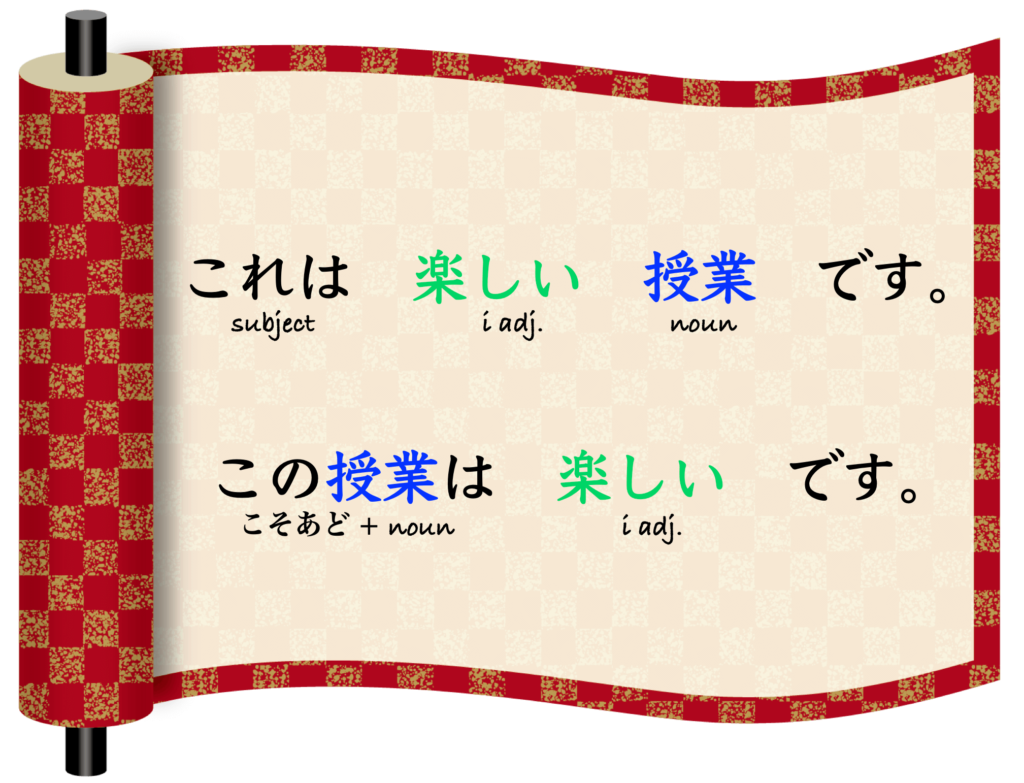
Key Phrases
I’ll teach you with “ていねい語 teinei-go Polite expression” 🙂
| na-adjective | before a noun | before the end |
|---|---|---|
| characteristic | modifying the noun | being a predicate |
| property | describing the noun | expressing the states or properties |
| i-adjective | before a noun | before the end |
|---|---|---|
| characteristic | modifying the noun | being a predicate |
| property | describing the noun | expressing the states or properties |
| ① ここは 静かな 場所では ありません。 |
|---|
| koko wa shizukana basyo dewa arimasen |
| This is not a quiet place. |
| ② この場所は 静か |
|---|
| kono basyo wa shizuka dewa arimasen |
| This place is not quiet. |
| ① あちらは 高価な カメラじゃ ありません。 |
|---|
| achira wa kokana kamera jya arimasen |
| That is not an expensive camera. |
| ② あちらの カメラは 高価 |
|---|
| achira no kamera wa kouka jya arimasen |
| That camera is not an expensive. |
| ① そこは 素敵な 町ですか。 |
|---|
| soko wa sutekina machi desu |
| Is it a nice city? |
| ② その町は 素敵 |
|---|
| kasono machi wa suteki desuka |
| Is the city is nice? |
You see, the nuance of the emphasized word is is a bit different.
Exceptions
1. 同じ is Just 同じ
同じ is na-adjective but we don’t add either い and な. It is just used as 同じ.
| 同じ | おなじ | onaji | same |
2. “Popular” Is No Expression as Adjective in Japanese
| ❌ あれは 人気な お店です。 |
You can use this sentence but the sound is a bit weird for us. 人気 can be only used as a noun. Even Japanese people make a mistake too.
| ⭕️ ① あれは 人気の お店です。 |
|---|
| are wa ninki no omise desu |
| That is a shop of popularity. |
| ⭕️ ② あのお店は 人気です。 |
|---|
| ano omise wa ninki desu |
| That shop is popularity. |
( I know this English sentences are not good though…I just tried to translate this sentences directly.)
3. Words Ending with い Are Not Necessarily i-adjectives
① In the case, the Adjective can Change to Kanji
If you add な the end of these words, you can use as na adjectives.
| noun | ていねい→丁寧 | いがい → 意外 |
| na adjective | ていねいな | いがいな |
② These Words are Exceptions
Adjective words being ending with Both い and な are i ADJECTIVES. And Na adjectives being with ended いな are na ADJECTIVES
You can just memorize these words as exceptions if you are beginner’s level of Japanese.
| categories | 〜い | 〜な |
|---|---|---|
i adjectives | 大きい 小さい 温かい おかしい | 大きな 小さな 温かな おかしな |
| na adjectives | 嫌い きれい | 嫌いな きれいな |
【Advanced】
In this part, It’s difficult to understand for beginner’s level of Japanese. So, the people who want to know more about adjectives or more than intermediate level of Japanese can only learn this part. Japanese people learn these participles when we are age 14 y.o. We don’t usually use the name of i adjective and na adjective in Japan. The names are made for Japanese learners actually. In Japan, we learn as 形容詞, 形容動詞, 連体詞.
| before a noun | before the end | |
|---|---|---|
| i adjective | 形容詞 keiyoushi | 形容詞 keiyoushi |
| na adjective | 連体詞 rentaishi | 形容動詞 keiyoudoushi |
な形容詞 na adjective
We call conjunction of na adjectives added the end of the sentence are 形容動詞 keiyoudoushi. Besides, we call na adjectives added before noun are 連体詞 rentaishi.
い形容詞 i adjective
we call adjectives which are added before noun are 形容詞 keiyoushi.
📚Adjective Words Being Ending with Both い and な are i ADJECTIVES
| stem : 大き | 〜い | 〜な |
|---|---|---|
| word | 大きい | 大きな |
| word + noun | ⭕️大きい人 形容詞 | ⭕️大きな人 連体詞 |
| word + です。 | ⭕️大きいです。 形容詞 | ❌大きです。 |
| stem : 小さ | 〜い | 〜な |
|---|---|---|
| word | 小さい | 小さな |
| word + noun | ⭕️小さい人 形容詞 | ⭕️小さな人 連体詞 |
| word + です。 | ⭕️小さいです。 形容詞 | ❌小さです。 |
| stem : 温か | 〜い | 〜な |
|---|---|---|
| word | 温かい | 温かな |
| word + noun | ⭕️温かい人 形容詞 | ⭕️温かな人 連体詞 |
| word + です。 | ⭕️温かいです。 形容詞 | ❌温かです。 |
| stem : おかし | 〜い | 〜な |
|---|---|---|
| word | おかしい | おかしな |
| word + noun | ⭕️おかしい人 形容詞 | ⭕️おかしな人 連体詞 |
| word + です。 | ⭕️おかしいです。 形容詞 | ❌おかしです。 |
📚Na adjectives being ended with いな are na ADJECTIVES
| stem : 嫌い | 〜い | 〜な |
|---|---|---|
| word | 嫌い | 嫌いな |
| word + noun | ❌嫌い人 | ⭕️嫌いな人 連体詞 |
| word + です。 | ⭕️嫌いです。 noun | ⭕️嫌いです。 形容動詞 |
| stem : きれい | 〜い | 〜な |
|---|---|---|
| word | きれい | きれいな |
| word + noun | ❌きれい人 | ⭕️きれいな人 連体詞 |
| word + です。 | ⭕️きれいです。 noun | ⭕️きれいです。 形容動詞 |
⚠️ 嫌い and きれい ARE NOT adjectives without な. These words are NOUNS.
Japanese people can check these words whether they are i-adjective or na-adjective by adding です or だ the end of the words of na adjectives. But it’s hard to understand for non native speakers because we judge these words potentially.
4. The Difference Between i-adjective And na-adjective
The difference between i-adjective and na-adjective is not only necessarily い or な.
As a result, the difference between i-adjective and na-adjective is;
| ・i-adjective always ends with “い” and can modify a noun directly. |
| ・na-adjective ends with “だ” in casual phrases and can modify a noun. This adjective tends to be used all kanji. |
Originally, i and na adjectives are just the ways to be able to tell the adjective easily. So, you should just memorize these words as exceptions.
Vocabulary Words
na-adjective can be a noun originally.
| na-adjective |
|---|
| noun + な |
| 有名 | ゆうめい | yuumei | renown |
| 有名な | ゆうめいな | yuumeina | famous |
| 素敵 | すてき | suteki | – |
| 素敵な | すてきな | sutekina | nice |
| 静か | しずか | shizuka | quiet |
| 静かな | しずかな | shizukana | quiet |
| 元気 | げんき | genki | energy |
| 元気な | げんきな | genkina | energetic |
| 親切 | しんせつ | shinsetsu | kindness |
| 親切な | しんせつな | shinsetsuna | kind |
| 好き | すき | suki | likes |
| 好きな | すきな | sukina | favorite |
| 高価 | こうか | kouka | – |
| 高価な | こうかな | koukana | expensive |
| 丁寧 | ていねい | teinei | politeness |
| 丁寧な | ていねいな | teineina | polite |
| 意外 | いがい | igai | – |
| 意外な | いがいな | igaina | unexpected |
| きれい | kirei | beauty |
| きれいな | kireina | beautiful |
| 嫌い | きらい | kirai | dislike |
| 嫌いな | きらいな | kiraina | – |
Red, blue, white and black can be only a i adjective
| ⭕️ 赤い 青い 白い 黒い |
| akai aoi shiroi kuroi |
| red blue white black |
Yellow and blown can be only a i adjective with 色い
| ⭕️ 黄色い 茶色い |
| kiiroi chairoi |
| yellow blown |
| ❌ 黄い 茶い |
the other colors can be a noun with の
| ⭕️ 緑の ピンクの |
| midorino pinkno |
| green pink |
| ❌ 緑い ピンクい |
| 日本語 | ふりがな | pronunciation | English |
|---|---|---|---|
| 場所 | ばしょ | basho | place |
| 絵 | え | e | picture |
| お店 | おみせ | omise | shop |
| 家 | いえ | ie | house |
| 町 | まち | machi | city |
| 授業 | じゅぎょう | jyugyou | lesson |
| 桜 | さくら | sakura | cherry blossom |
| 山 | やま | yama | mountain |
| 人 | ひと | hito | person |
| カメラ | かめら | kamera | camera |
Let’s Practice
Your Homework
✏️Answer these questions in Japanese and comment below.
| Make 3 sentences with na adjectives. |
Was this lesson difficult for you, right? Yeah, it was difficult to explain for me too! Lol It took a lot of time more than usual. So don’t worry! Please read this lesson again and again.
Okay, that’s all for today! Good luck with your Japanese study 😉
*MINNA NO NIHONGO,VOL.1-W/CD*
| Amazon Reviews: | ★★★★★ |
|---|
Author:
Makiko Shinya / Chiyoko Koga / Tooru Takada / Keiko Mikogami
supervised by Koichi Nishiguchi
Publisher:3 A corporation (2nd Edition)
P.S. My English skill is not enough yet. Please correct me with DM from CONTACT if my English is wrong. Thank you for your cooperation!
Next Lesson is; CLICK HERE!
Minna no Nihongo 5: Ga Arimasu and Ga Imasu
Previous Lesson is; CLICK HERE!
Minna no Nihongo 4: Fujisan wa Takai Desu【i adjective】
